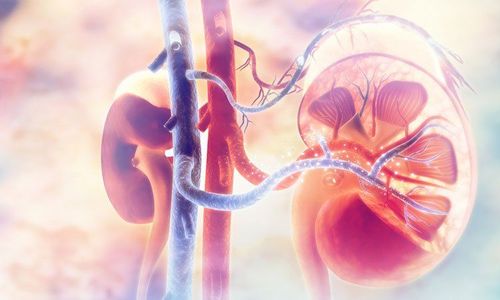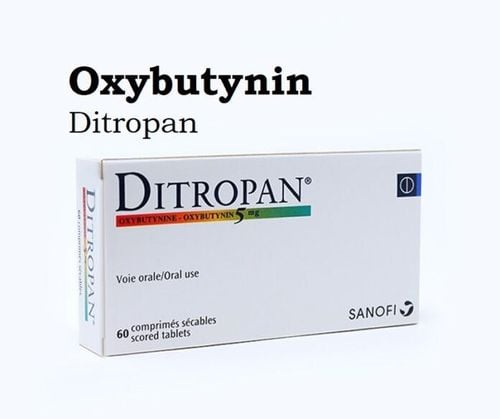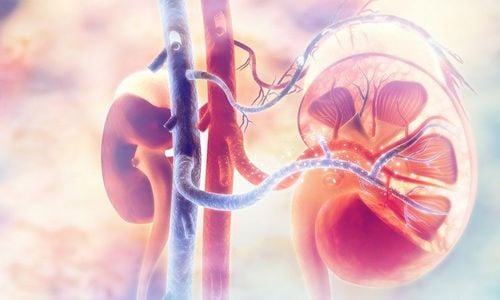This is an automatically translated article.
Glomerulonephritis is an inflammation of the small filters in the kidneys. Glomerulonephritis can be spontaneous or a complication of another disease, such as lupus or diabetes.1. What is acute glomerulonephritis?
Acute glomerulonephritis (GN) is a specific kidney disease in which an immune mechanism triggers inflammation and proliferation of glomerular tissue that can lead to damage to the basement membrane, the mesangial cells located around the capillaries. glomerulus or capillary endothelium. Acute nephrotic syndrome is the most severe form.
Acute GN is defined as the abnormal appearance of blood, proteinuria, and red blood cells (RBC) in the urine. Acute GN can be due to primary or systemic kidney disease. Most of the early studies focused on acute PSGN.
When acute GN is associated with chronic infection, the underlying infection must be treated.
2. Causes of acute glomerulonephritis
The causative factors of acute GN can be divided into infectious and non-infectious groups.2.1. Infection The most common cause of acute GN is infection by Streptococcus strains (eg, group A, beta hemolytic). Two types have been described, involving different serotypes:
Serotype 12 - Postpneumococcal nephritis due to upper respiratory tract infections, occurring mainly during winter months Serotype 49 - Postpneumococcal nephritis coccidiosis caused by skin infections, usually appearing in summer and autumn. GN can also be caused by a bacterial, viral, parasitic, or fungal infection. Bacteria besides group A streptococcus that can cause acute GN include:
Diphtheria

Song cầu khuẩn có thể gây viêm cầu thận cấp
Other Streptococcus Groups Staphylococci Mycobacterium Bacteria Typhoid bacteria Brucella bacteria Spiral syphilis Diphtheria bacteria Bacteria that cause pneumonia. Cytomegalovirus (CMV), coxsackievirus, Epstein-Barr virus (EBV), hepatitis B virus (HBV), rubella, rickettsia (as in typhus), parvovirus B19, and mumps virus are accepted causes. if streptococci cannot be demonstrated. Acute GN has been reported as a rare complication of hepatitis A.
Glomerulonephritis of parasitic or fungal etiology requires the exclusion of a streptococcal infection. The organisms identified include Coccidioides immitis and the following parasites: Plasmodium malariae, Plasmodium falciparum, Schistosoma mansoni, Toxoplasma gondii, filariasis, trichinosis and trypanosoma.
2.2. Noninfectious Non-infectious causes of acute GN can be divided into primary kidney diseases, systemic diseases, and other agents. Systemic diseases that can cause acute GN include:
Tubulitis vasculitis (eg, granulomatosis with polyangiitis) - This disease causes glomerulonephritis associated with granulomatous inflammation.

Viêm ống dẫn tinh là nguyên nhân không nhiễm trùng có thể gây viêm cầu thận cấp
Vascular diseases (eg, systemic lupus erythematosus [SLE]) - This disease causes glomerulonephritis through the deposition of immune complexes in the kidney. Hypersensitivity vasculitis - This includes a heterogeneous group of disorders with skin disease. Cryoglobulinemia - This disease causes abnormal amounts of cryoglobulin in the plasma leading to repeated episodes of widespread purpura and skin ulcers. Polyarteritis - This disease causes nephritis due to vasculitis involving the renal artery. Primary kidney diseases that can cause acute GN include:
Membranous proliferative glomerulonephritis (MPGN) - This disease is caused by the enlargement and proliferation of mesangial cells as a result of deposition. Type I refers to the granular deposition of C3; Type II refers to an abnormal process. Immune nephropathy A (IgA) (Berger's disease) - This disease causes GN as a result of mesangial deposition of IgA and IgG. Idiopathic rapidly progressive glomerulonephritis - This form of GN is characterized by the presence of glomerular crescents. Three types have been distinguished: Type I is Goodpasture syndrome, type II is mediated by immune complexes, and type III is identified by antineutrophil cytoplasmic antibody (ANCA). Other noninfectious causes of acute GN include:
Guillain Barre syndrome Wilms tumor irradiation Diphtheria-pertussis-tetanus (DPT) vaccine Serum disease Expression growth factor receptor activation skin, and possibly inhibited by cetuximab.
Please dial HOTLINE for more information or register for an appointment HERE. Download MyVinmec app to make appointments faster and to manage your bookings easily.













